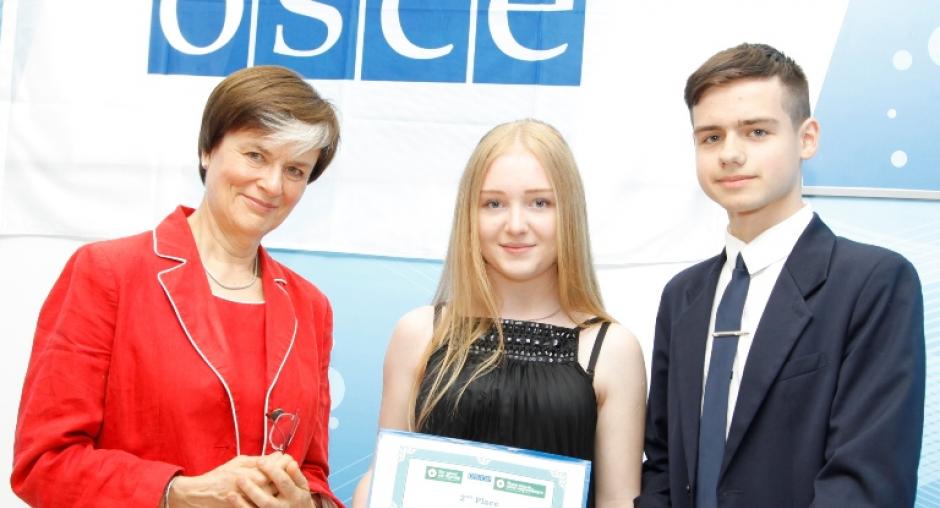OSCE High Commissioner encourages inclusive approach to integration and education issues in Moldova and welcomes joint working group on Gagauzia

OSCE High Commissioner on National Minorities (HCNM) Astrid Thors visited Moldova from 23 to 25 May 2016 to discuss issues including the draft integration strategy developed with HCNM’s assistance to the Bureau for Interethnic Relations, relations between Chisinau and the autonomous territorial unit of Gagauzia, and the education of national minorities. The High Commissioner also visited Tiraspol.
In Chisinau, the High Commissioner discussed the draft integration strategy with Prime Minister Pavel Filip and other interlocutors and encouraged the Government to fulfil without delay its commitment to adopt the strategy. “Adoption of the integration strategy will underscore the Government’s commitment to promoting an inclusive, diverse society,” said Thors. “Even more important will be the strategy’s implementation. I am ready to assist the Bureau for Interethnic Relations in this process.”
The High Commissioner praised the parliamentary decision in November 2015 to establish a permanent joint working group between the Moldovan Parliament and the People’s Assembly of Gagauzia. She discussed the functioning of the working group with its co-chairs, Member of Parliament Elena Bacalu and People’s Assembly Member Gheorghii Leichu, Speaker of Parliament Adrian Candu, and the Bashkan of Gagauzia Irina Vlah. Thors encouraged the working group to be fully utilized as the primary platform for discussing issues related to the functioning of the autonomy so that questions that may contribute to tensions can be successfully addressed.
With Minister of Education Corina Fusu, the High Commissioner discussed implementation of the Education Code and the effect of education reforms on schools teaching in minority languages, including optimization of the school network and new procedures for the selection of school directors. “Having heard from national minority representatives that education is a primary concern, I encouraged the Minister to ensure that national minorities are consulted when implementing reforms,” she said. The High Commissioner noted with interest the adoption of a new programme to improve teaching of the State language in minority-language schools, remarking that it provides an opportunity to expand multilingual education as a tool for integration.
The High Commissioner met members of the Council of Ethno-Cultural Organizations in Chisinau and with the Transdniestrian de-facto authorities and civil society representatives in Tiraspol. She visited the Theoretical Lyceum Alexandru cel Bun in Bender and learned about the practical difficulties the school faces in maintaining its operations as a Moldovan-administered school teaching in the Latin script. Thors welcomed the active efforts of the OSCE Mission to Moldova and the German Chairmanship of the OSCE to find sustainable solutions for the Latin-script schools among other issues as part of the Transdniestrian Settlement Process, and noted the anticipated resumption of talks in the 5+2 format, which she discussed with Deputy Prime Minister on Reintegration Gheorghe Balan and Transdniestrian Chief Negotiator Vitaly Ignatiev.
The High Commissioner also met with Deputy Prime Minister on Social Issues Gheorghe Brega, Director General of the Bureau for Interethnic Relations Oleg Babenco, Deputy Minister of Foreign Affairs Lilian Darii, and representatives of civil society and the international community.
